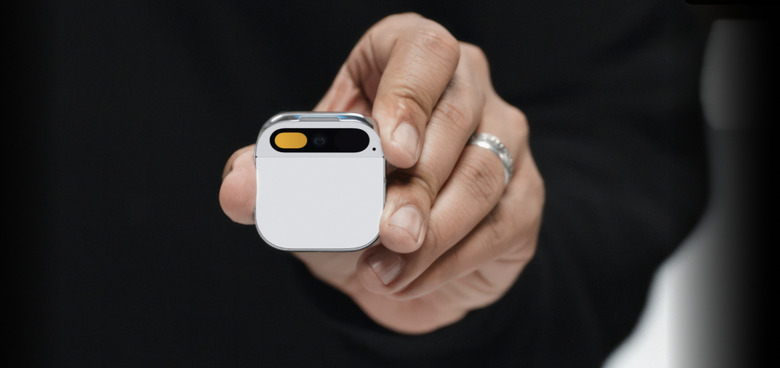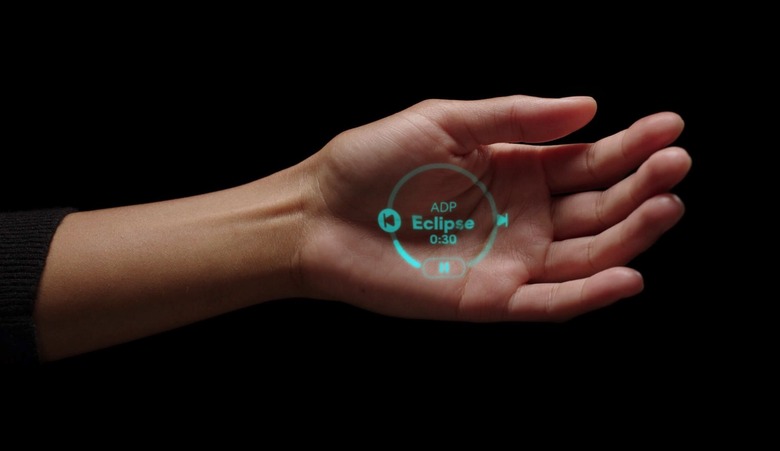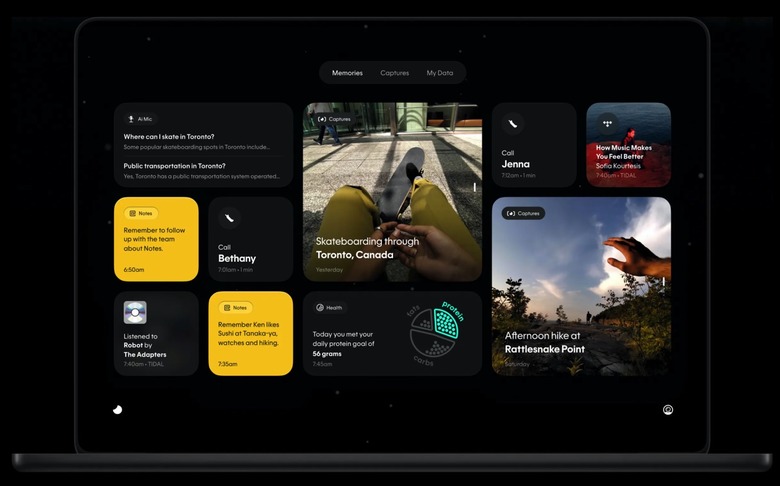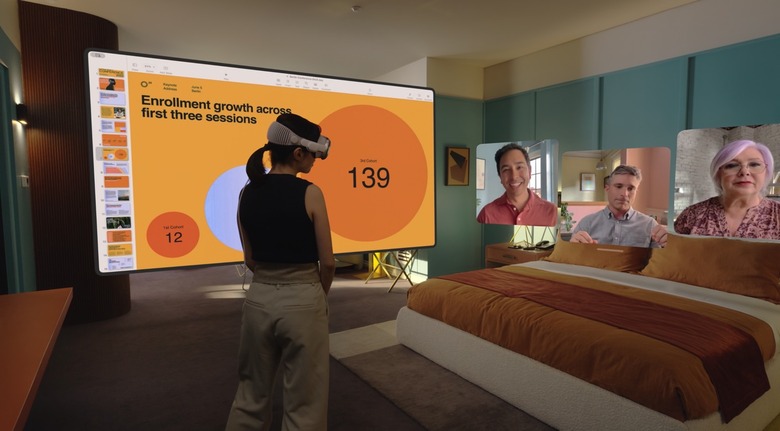Humane Needs One More Thing For The Ai Pin To Work - And Apple Can Pull It Off
Take a look at the thing above while I tell you what it is and does. It's Humane's Ai Pin, a $699 AI device you're supposed to wear on your clothing. It looks like a tiny iPhone, or a larger Apple Watch when you look at it from the front. A profile view will show you this thing has a sort of brow on top, where the camera and sensors go. It's very easy to understand the concept once you see and hear about it.
Now, imagine I'm only describing the Ai Pin rather than showing it to you while I talk. Imagine I tell you everything about it. The Pin needs a constant internet connection to work as a not-smartphone and to support unlimited AI queries. All for $24/month a month on top of that $699. And it features hot-swappable batteries that double as magnets, holding it in place on clothing.
You'd still understand the concept just fine, but it wouldn't be the same experience as looking at it while you hear about its features.
Now, apply the second experience to the kind of AI computing Humane proposes for the Ai Pin. That's right, you wouldn't get the visual experience that comes with smartphone use. The AI on the Ai Pin might be incredibly smart, and it might be able to answer questions and perform tasks for you. But it's not enough.
We need screens on our computers
We are visual beings by design. As annoying as screen time might be, we can't kill smartphones with devices like the Ai Pin. And that's why I think the Humane wearable device will fail. However, the Ai Pin needs one more thing for it to possibly become a great product in these early days of AI-first hardware.
Smart (augmented reality) AR glasses that would, in tandem with the AI Pin, offer that visual experience. Add such an accessory, and you might end up with an iPhone "killer" device. And the company that might deliver such a gadget could be Apple.
As a fan of ChatGPT, I've taken an interest in the Humane Ai Pin from the first teasers earlier this year. I had plenty of questions about it, especially about the screen-less experience. It turns out that's a bit of a hypocritical stance from Humane.
The Ai Pin does have a projectable display that you can use for certain AI experiences. Also, you have to set up the Ai Pin using a different device. A computer with a screen. That's now the way you set up iPhone or Android devices.
Finally, all the content the Ai Pin lets you record is only available via the same digital platform. You can't view photos and videos as soon as you take them. Or inspect notes. Not unless you take a break from what you're doing to load up Humane's Ai Pin app on your phone or computer. That would defeat the entire purpose of wearing AI on you.
AR glasses for the Ai Pin
But add AR glasses to the mix, and the Pin could project an actual screen in front of your eyes. With a screen, you'd be able to handle notifications better, read email and other text, use navigation apps, and view all those photos you take from with the device. It could all be a great experience. Such a device would truly help reduce screen time. And it could replace the smartphone.
Again, the Ai Pin is practically a smartphone — one without screens and apps.
I said before that Apple should buy Humane for the AI tech. That would be an ironic twist for Humane's co-founders, who are former Apple employees. I no longer think that.
The AI platform that Humane created isn't unique. Features like the ones Humane developed are coming soon to all smartphones. Devices like the Galaxy S24 and the iPhone 16 should come with built-in AI features that could provide an experience similar to the Ai Pin. Then there's Google building generative AI features into Assistant for Pixel phones.
Sure, you won't be wearing a camera, but you'll be using the phone's cameras a lot. And you'll always see what you're interacting with.
How Apple will 'kill' its own iPhone
Rumors say that Apple is working on AR glasses that could replace the iPhone. However, it needs significant innovations to make such a standalone device happen. The gadget should feature high-end displays and sound, massive processing power, and a battery that can last all day. All of that must be packed inside glasses that look similar to prescription ones.
But what if you remove all the processing from the AR glasses to the iPhone? What if the first AR glasses experience involves a device like an iPhone doing the heavy lifting in your pocket or purse and then projecting everything to the AR glasses you're wearing?
Imagine a smaller iPhone, maybe slightly larger than the AI Pin but smaller than the iPhone mini. You'd hardly need to use its screen, as you'll always rely on the glasses for visual experiences. In time, that portable iPhone could shrink down to the size of an Ai Pin. Maybe one that doesn't even have a screen. Years later, it would disappear as Apple finally packs all the tech inside the same glasses.
That's why the Vision Pro, seen in use above, is so important. It's a precursor of the AR glasses of the future that Apple can't build right now.
With all that in mind, I don't think we're in a place where the Ai Pin can succeed commercially. Or that Humane can make money off of it. I wouldn't buy a standalone not-smartphone smartphone like the Ai Pin from Apple, Google, or any other handset maker. No matter how interesting the AI features are, it needs a visual experience.
By the way, it turns out the Ai Pin also makes AI mistakes, with some of them having trickled into the official promo video. I don't expect Humane to deliver a hallucination-free experience. It might be years before that happens. But we'll need screens on AI devices to double-check AI information as long as we can't fully trust it.



